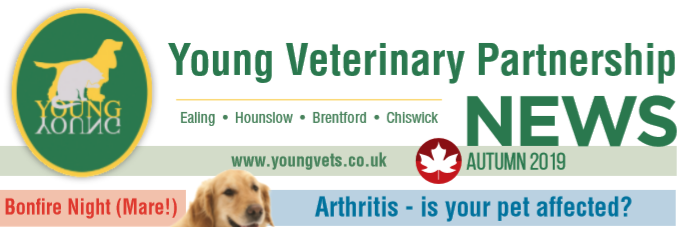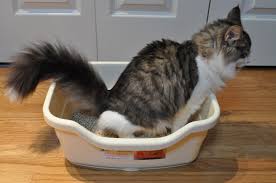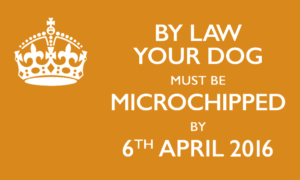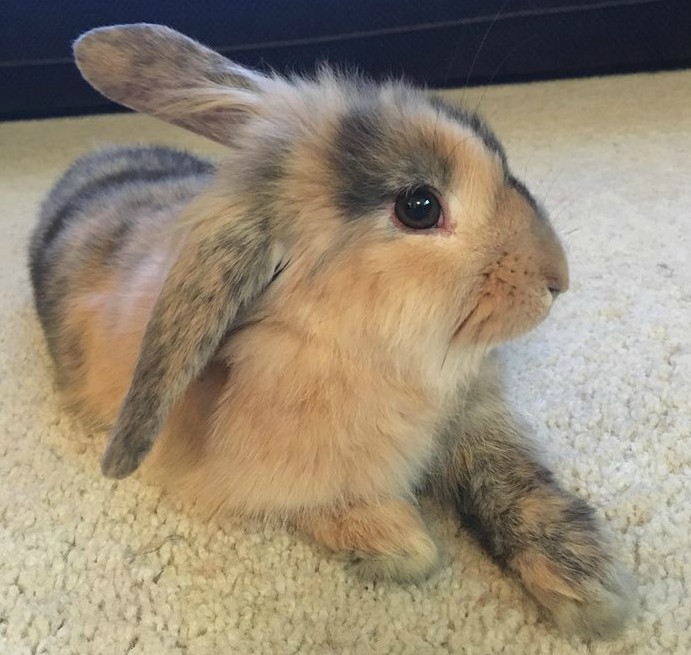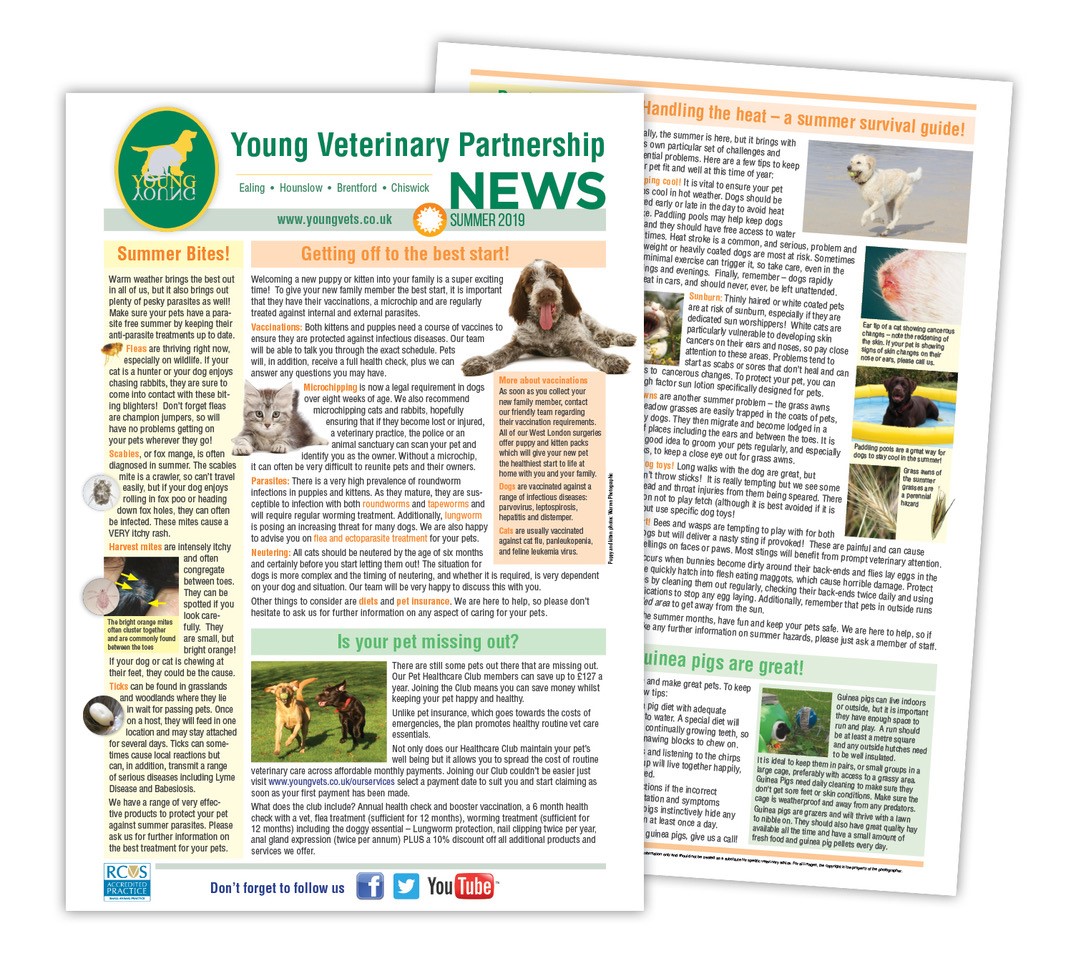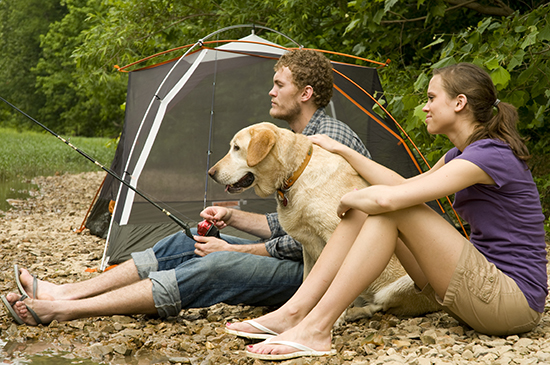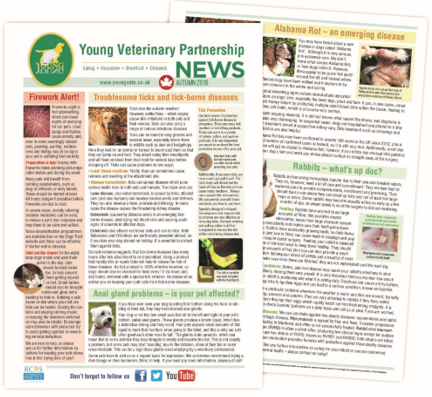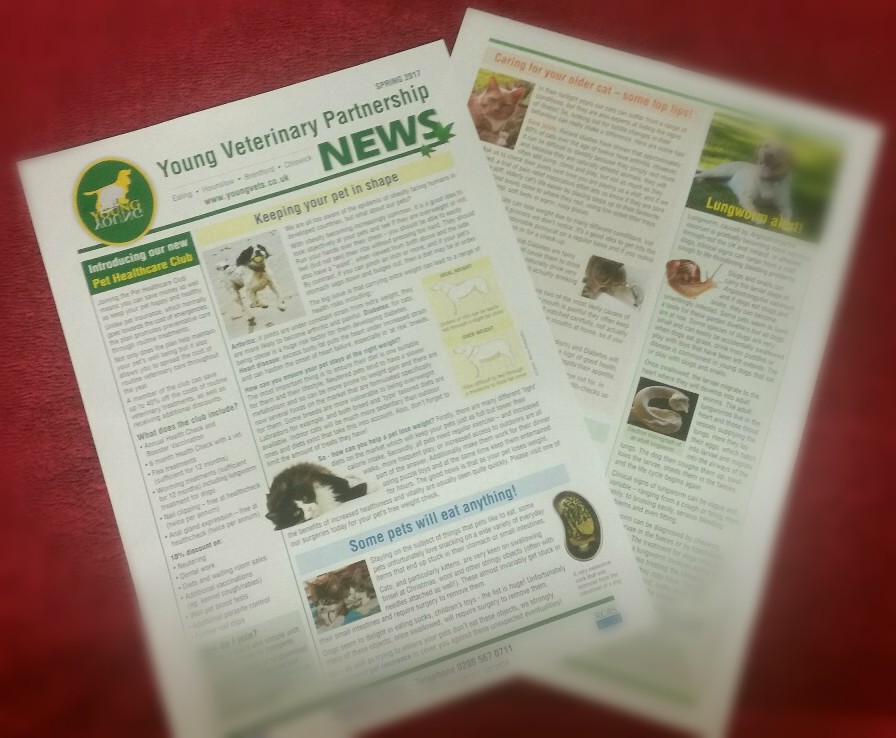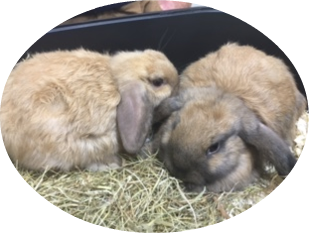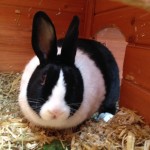Choosing a rabbit
While it is not possible to guarantee the health of an individual rabbit there are several things that you can do to maximise the chance that your new pet will have the best start in life. Where possible have the rabbit checked by one of our veterinary surgeons either before or immediately after purchase. Do not choose a sickly looking rabbit because you feel sorry for it, you will only be taking on problems.
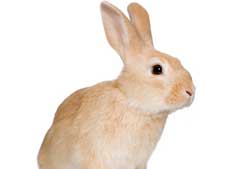
Here is a list of things to check:
- The eyes and nose should be clear and free of any discharge (this could be a sign of an infection)
- If you are buying a dwarf or brachycephalic (flat faced) breed make sure you take extra care when checking eyes, nose and mouth.
- If possible gently part the lips and examine the rabbit’s front (incisor) teeth to check they are not broken or overgrown.
- The rabbit should be curious and inquisitive.
- The bunny should be in good body condition. Run your hands all over their body – bones should be felt but not seen and should be covered with a reasonable layer of muscle.
- Check the rabbits back end, it should be clean and clear. Signs of wetness or droppings stuck to fur could indicate a health issue.
- Ask whether he / she has been vaccinated against myxomatosis and RHD – these diseases can and do take the lives of un vaccinated rabbits.
- If the bunny is over 4 months old, ask if it has been neutered. This can help prevent urinary problems and cancer developing later in life. Here at Young Vets we recommend neutering your bunny, please discuss this with our team when you visit with your new pet.
- Finally, find out what the rabbit is being fed on, as you do not want to introduce a sudden change of diet when you get it home – this may provoke gut disturbance and diarrhoea when you bring your new pet home.
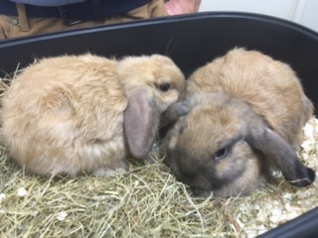
Sale VS Adoption
Pet shops may have rabbits for sale. It is important to ensure that they have been kept in single sex groups and that the staff can give you information on the source, age, sex and care of the rabbits. While the internet can provide a convenient way of researching breeds, we would advise against purchasing rabbits without visiting to see them in their home environment first. Ideally, you want to inspect the mother and littermates. While the offer to deliver your rabbit to you may seem appealing, remember that this could be hiding irresponsible breeding and care practices. REMEMBER – Pets are not pizza – never take Home Delivery of a pet!
The benefits of rehoming; When you visit an adoption centre all animals receive a full assessment including health and behaviour. Vaccinations, microchips and neutering will already of been performed (according to age). The rescue centres will also offer you a life time of support and advice as your pet grows. The centres are full to capacity with unwanted and abandoned animals all looking for new homes, why not consider adopting instead of shopping?
Socialisation
After bringing your rabbit home it is useful to introduce them slowly to various sights, sounds, people and experiences around the house and garden. Once they have become accustomed to their surroundings, it is advisable to handle them regularly. When handling your new pet, always support its chest and hindquarters as this will prevent spinal injuries. Hold the front end of your rabbit under its chest between the front legs with one hand, scoop up the hind end with your other hand. Always hold your rabbit close in to your body so it feels secure and support its hindquarters to prevent spinal injuries. You can tuck its head under your arm or if it appears stressed as this will help keep it calm.
Never pick a rabbit up by its ears or let its legs dangle freely.
Often it is best to get down to the rabbit’s level and stroke it, letting it come to you; or gently place it on your lap while you are sitting on the floor, rather than picking it up and lifting it off the ground. Do not lie a rabbit on its back, even if it lies still and appears to be ‘hypnotised’. This is in fact a stress response and is not pleasurable to the rabbit, although it may be useful in some specific situations for non-painful grooming or veterinary procedures such as nail clipping. Remember that rabbits are naturally prey animals and as such can have a nervous temperament, training them will take time and patience.
Companionship
Rabbits are very sociable and should not be kept on their own. They need other rabbits for companionship. They may be kept in single sex groups, or pairs (a male and a female). Which ever option you choose, please consider neutering your pets, intact males are more prone to developing behavioural problems including biting, fighting and urine spraying. Rabbits should not be kept with guinea pigs because rabbits can bully and injure guinea pigs, and they both need company from their own species.
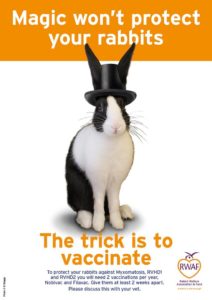
Vaccinating your bunny
Rabbits should be vaccinated routinely against rabbit haemorrhagic disease (RHD) and myxomatosis. Both these viral diseases can be rapidly fatal in an unvaccinated rabbit, and there is no specific cure for either disease once established. The only protection you can give your rabbits is through vaccination. RHD is spread by direct contact between rabbits (both wild and domesticated) but also via indirect contact with people, clothing, shoes, other objects and fleas. Myxomatosis is commonly spread by fleas and other biting insects, and can often be transmitted in this way from wild rabbits to pets. A combined myxomatosis-RHD vaccination can be given from as early as five weeks of age. Boosters are given every 12 months and cover both diseases. Join our Pet Healthcare Club and spread the cost of your rabbits vaccinations, health checks and flea and worming prevention across affordable monthly payments. Our team will provide you with further advice on vaccination, as well as flea and other parasite control. The best way to avoid many disease problems in your pet rabbits is to have regular veterinary health checks at least annually, which can coincide with vaccinations. Your rabbits will be given a full examination and the teeth can be checked (particularly the back teeth) for any evidence of dental disease.

If you are thinking about buying a rabbit, or perhaps you’ve just bought one into your home, contact our friendly team we have four surgeries accross the West London area, with a range of opening hours to suit you and your new pet. We look forward to meeting you both soon.
This blog has been produced by PetSavers. Petsavers is dedicated to improving the health of the nation’s pets. We do this by funding clinical research projects and Master’s degrees by research. Clinical research projects give us a better understanding of pets’ illnesses. This leads to improved diagnosis and treatment so that pets can have longer and healthier lives. A Master’s degree by research develops the skills of vets so they can apply the results of the research and their expertise to pets as soon as possible. No experimental animals are used in PetSavers studies. In the last 40 years PetSavers has given over £2 million towards these goals. PetSavers rely on the support of vets, nurses and pet owners.
www.petsavers.org.uk

